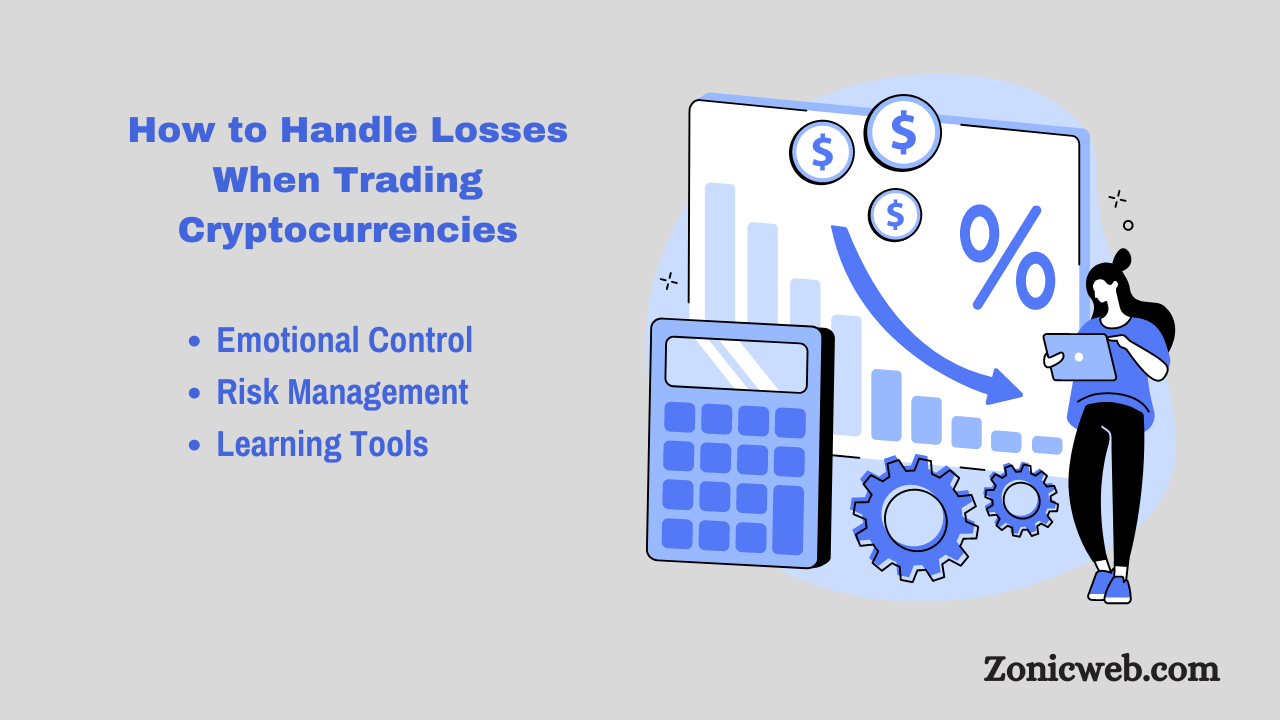One of the most difficult aspects of the investment journey can be managing losses in crypto trading. Even for the most experienced traders, losses are inevitable in a highly volatile market like cryptocurrency. However, how these setbacks are handled can have a significant impact on long-term success. Accepting that losses are a natural part of trading is the first and most important step in dealing with them. Markets can be unpredictable, and no strategy is foolproof. It is essential to comprehend that losing does not necessarily imply failure; rather, it is an opportunity to grow and adapt.
When dealing with losses, developing emotional control is essential. After a loss, it’s easy to fall into the trap of panic selling or revenge trading in an effort to quickly get back what was lost. These emotional responses frequently result in even greater errors. Instead, it’s important to keep your cool, reevaluate the situation, and don’t make decisions on the fly. Emotional responses can be reduced by adhering to a predetermined trading plan. It is essential to have a precise strategy that specifies when to exit a trade, establishes stop-losses, and manages risk. This eliminates a significant amount of the guesswork and emotional strain that can accompany loss.
Another important part of effectively handling losses is risk management. It is essential to only invest what you are willing to lose before entering any trade. A small portion of your total capital can be allocated to each trade, limiting the damage that could result from one bad decision. Stop-loss orders prevent you from making emotional decisions in the heat of the moment by automatically exiting a trade when it reaches a certain level of loss. Spreading investments across a variety of cryptocurrencies, or diversification, can also lessen the impact of losses because the loss of one asset won’t wipe out your entire portfolio.
A useful learning tool is to look into the reasons behind a loss. Take the time to evaluate the trade objectively following a losing trade. Did you carry out your plan? Did your analysis contain a flaw? Were factors from the outside market at play? It is easier to avoid making the same mistakes again and make better decisions in the future if you are aware of what caused the loss. Additionally, keeping a trading journal in which you record each trade, along with its rationale, outcome, and lessons learned, is beneficial. This makes it easier to monitor progress and adjust strategies over time.
Another important quality to have when dealing with losses is patience. It can be tempting to immediately return to the market in an effort to recover quickly after a significant loss. However, this frequently results in ill-considered trades and additional losses. Instead, take some time to regroup, look at the market, and make a plan before you go back in. Resetting your mindset and avoiding further emotional decisions can sometimes be accomplished by taking a brief break from trading.
It’s also crucial to keep a long-term perspective. In the short term, the cryptocurrency market can be very volatile, with big price swings that can cost a lot of money. However, despite setbacks, many successful traders have been able to achieve overall profitability over a longer period of time. Keeping emotions under control and encouraging a more disciplined approach to trading are two benefits of concentrating on the bigger picture rather than reacting to individual losses.
Additionally, it is essential to avoid over-leveraging. Leverage, also known as borrowing money, can increase both profits and losses in a trade. Leverage can quickly transform a manageable loss into a devastating one, despite the fact that it may appear appealing during a winning streak. Losses can be controlled from spiraling out of control by sticking to lower leverage levels or avoiding it altogether.
Last but not least, get help and education. New insights and coping mechanisms can be gained by participating in trading communities or learning from more experienced individuals. For long-term success in the cryptocurrency market, it is essential to remain informed about emerging trends, regulations, and strategies. Losses are a natural part of learning, and the more experience and knowledge you have, the better equipped you will be to deal with setbacks.
